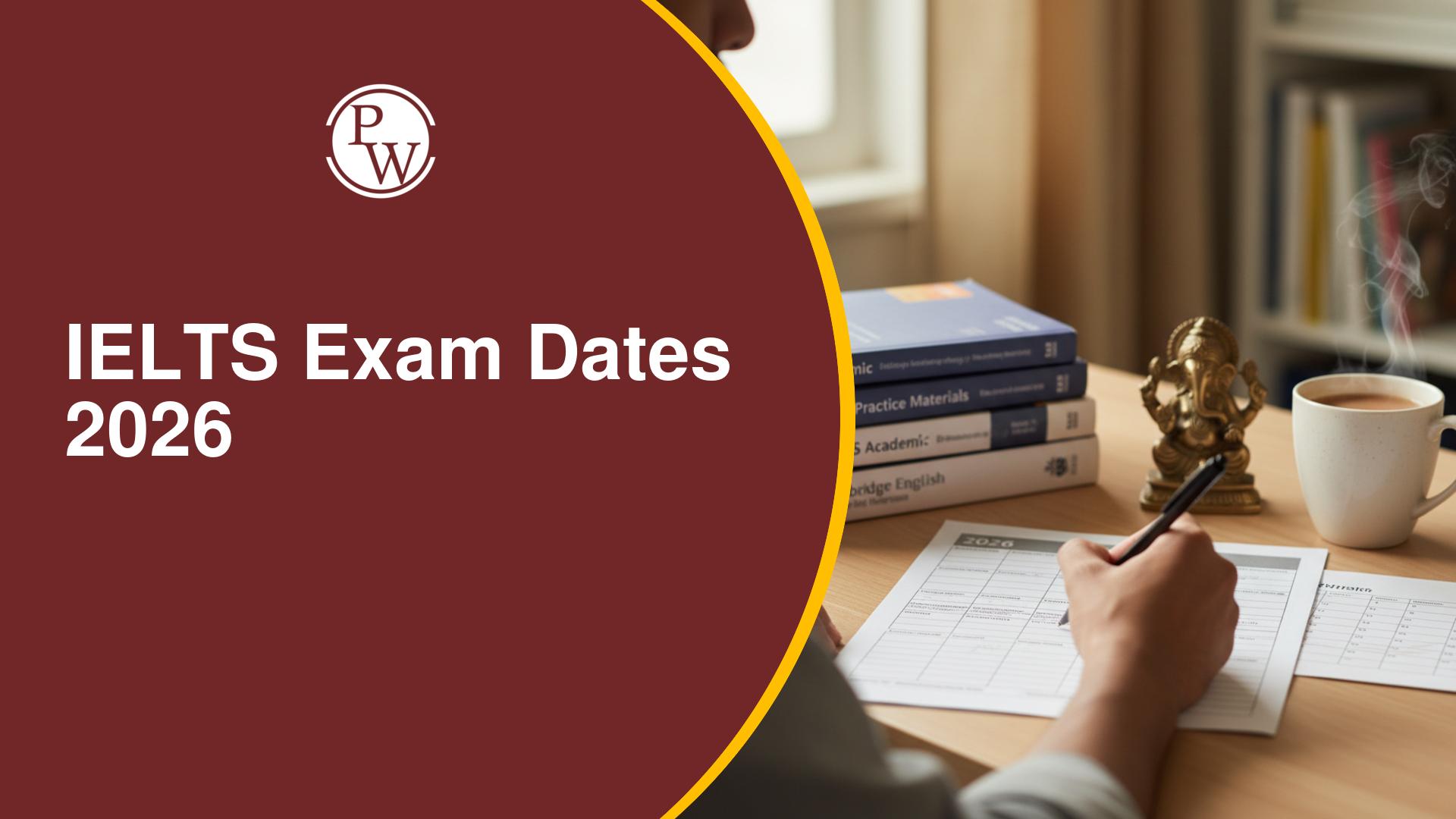
Describe your Education IELTS Speaking Part 1 Sample Answer : Students can score Band 8.0+ for IELTS Speaking if they concentrate on one topic in IELTS Speaking Part 1 and use grammatical rules and vocabulary to develop it into a long, meaningful sentence.
This will allow you to answer the examiner's questions naturally and fluently. Let's practice with a few basic questions about a common topic “Describe your Education IELTS Speaking Part 1 Sample Answer”.Also Check:
Describe your Education IELTS Speaking Part 1 Sample Answer Vocabulary
The IELTS vocabulary list for "Describe your education" is provided below with examples.| Describe your Education IELTS Vocabulary | ||
| Words | Meaning | Examples |
| Impart | to provide or to pass on or to grant | Teachers impart knowledge and wisdom. |
| Encounter | unexpectedly face or face (something unfriendly or difficult) | She will encounter Sea High's strongest opponent. |
| Consult | ask for advice or information from someone, particularly a professional or expert. | Consult your doctor before taking any medication. |
| turn to | approach | She should turn to her mother for advice. |
| Inspiration | The act of being intellectually motivated to do or feel excited. | She is an inspiration for her siblings. |
| Extracurricular | (of a school or college activity) done outside of the normal course of study. | Sports is an extracurricular activity in school. |
| Well-rounded | (of a person) fully developed or shapely figure | She is an all-rounded scholar. |
| Be exposed to | Uncover something to make it visible. | Don't let this product be exposed to direct sunlight. |
| Nurture | take good care of and protect (someone or something) during growth | Nurture your hair daily. |
| drop out | quit participating or being involved in something. | She will drop out of college. |
Describe your Education IELTS Speaking Part 1 Sample Answer
Here is the sample for “Describe your Education”, so that students can get a better understanding of this topic. Q1 - What is the difference between a teacher's and a parent's roles in education? Ans - I believe that teachers should motivate kids to learn and share information. Parents have a responsibility to educate children on appropriate behavior and provide a good example. Children should be allowed to talk to their teachers and parents about any issues they are having. Every class in my country, from school through high school, has a "head teacher" who knows the students well and who the children can ask for help from.Also Check:
Q2 - How could teachers improve their teaching? Which suggestions would you give? Ans - I believe that every teacher has a different teaching style that might not be helpful for every student. Motivation and knowledge are the two goals that every teacher should pursue. Teachers must be able to provide correct knowledge and motivate students to learn. It can be tough at times, but they should at least attempt it. Q3 - Which method do you think works best for teaching children? Ans - Children must attend school and participate in extracurricular activities to grow into mature children. Knowledge is important since it improves your ability to think and perform. Social interaction is also important, children must participate in activities that involve spending time together. Hobbies are helpful because they prevent children from feeling lonely. Q4 - How can we help children discover their talents? Ans - It takes experiencing different academic courses and activities for children to find their true talents. What matters is that students should be allowed to develop any skill they discover and use it to advance their careers. Q5 - Do you think the government supports education properly? Ans - The current level of support is insufficient, particularly in rural areas where children frequently drop out of school after a few years due to the inability of their families to provide for them and the necessity of working at a certain age.Tips for IELTS Cue Card Speaking Part 1 2024
You have understood the topic "Describe your Education IELTS Speaking Part 1 Sample Answer" Now move forward on tips to face the IELTS Speaking Cue card . It is important to be prepared and use proper strategies if you want to do well on the speaking questions in part 1. The following advice will help: Practice speaking fluently Have regular conversations with friends or join an English-speaking group. Expand your vocabulary Increase the vocabulary in your writing by reading, watching English-language movies or audio, and picking up new terms. Provide detailed answer Don't just answer, "I like to read," when someone asks what your interests are. Go into detail about the types of books you like to read, the authors you like, and the reasons you find reading enjoyable. Stay relevant It is important to give a detailed answer but keep it relevant to the question asked. Maintain a positive attitude Have a confident and friendly manner when taking the exam. Remember that the examiner is testing your level of English proficiency, not your character. Use appropriate body language and eye contact Maintain eye contact with the examiner, nod to show understanding, and use natural movements to improve communication. Clarify if needed If you don't understand a question, kindly ask the examiner to repeat or rephrase it. Manage your time effectively Keep an eye on the time and avoid any rambling or extra pauses since they can reduce your fluency score. Practice with sample questions Practice answering sample questions within the time limit by getting familiar with them. Stay calm and focused Avoid stressing over a mistake or blunder. Keep your calm and move on to the following question.PW Guidance for IELTS
If students want to prepare for the IELTS 2024 Exam, they should enroll in the next PW IELTS course . Students will receive all the basic information required to crack each IELTS section and get the best scores in this course.Describe your Education IELTS Speaking Part 1 Sample Answer FAQs
Q1- Can I choose my questions in part 1?
Ans- No, you are not able to. You will have to answer the questions asked.
Q2- Is Speaking Part 1 important?
Ans- The purpose of Speaking Part 1 is to get you comfortable discussing with the examiner. Compared to Parts 2 or 3, it is not as important.
Q3- Are the questions personal or general?
Ans- The questions are generally personal.
Q4- Should I use American or British English?
Ans- They're both accepted.
Q5- What kind of topics will be asked in Speaking Part 1?
Ans- Questions about jobs, studies, life, interests, etc. are covered in Speaking Part 1.
Talk to a counsellorHave doubts? Our support team will be happy to assist you!

Check out these Related Articles
Free Learning Resources
PW Books
Notes (Class 10-12)
PW Study Materials
Notes (Class 6-9)
Ncert Solutions
Govt Exams
Class 6th to 12th Online Courses
Govt Job Exams Courses
UPSC Coaching
Defence Exam Coaching
Gate Exam Coaching
Other Exams
Know about Physics Wallah
Physics Wallah is an Indian edtech platform that provides accessible & comprehensive learning experiences to students from Class 6th to postgraduate level. We also provide extensive NCERT solutions, sample paper, NEET, JEE Mains, BITSAT previous year papers & more such resources to students. Physics Wallah also caters to over 3.5 million registered students and over 78 lakh+ Youtube subscribers with 4.8 rating on its app.
We Stand Out because
We provide students with intensive courses with India’s qualified & experienced faculties & mentors. PW strives to make the learning experience comprehensive and accessible for students of all sections of society. We believe in empowering every single student who couldn't dream of a good career in engineering and medical field earlier.
Our Key Focus Areas
Physics Wallah's main focus is to make the learning experience as economical as possible for all students. With our affordable courses like Lakshya, Udaan and Arjuna and many others, we have been able to provide a platform for lakhs of aspirants. From providing Chemistry, Maths, Physics formula to giving e-books of eminent authors like RD Sharma, RS Aggarwal and Lakhmir Singh, PW focuses on every single student's need for preparation.
What Makes Us Different
Physics Wallah strives to develop a comprehensive pedagogical structure for students, where they get a state-of-the-art learning experience with study material and resources. Apart from catering students preparing for JEE Mains and NEET, PW also provides study material for each state board like Uttar Pradesh, Bihar, and others
Copyright © 2026 Physicswallah Limited All rights reserved.






